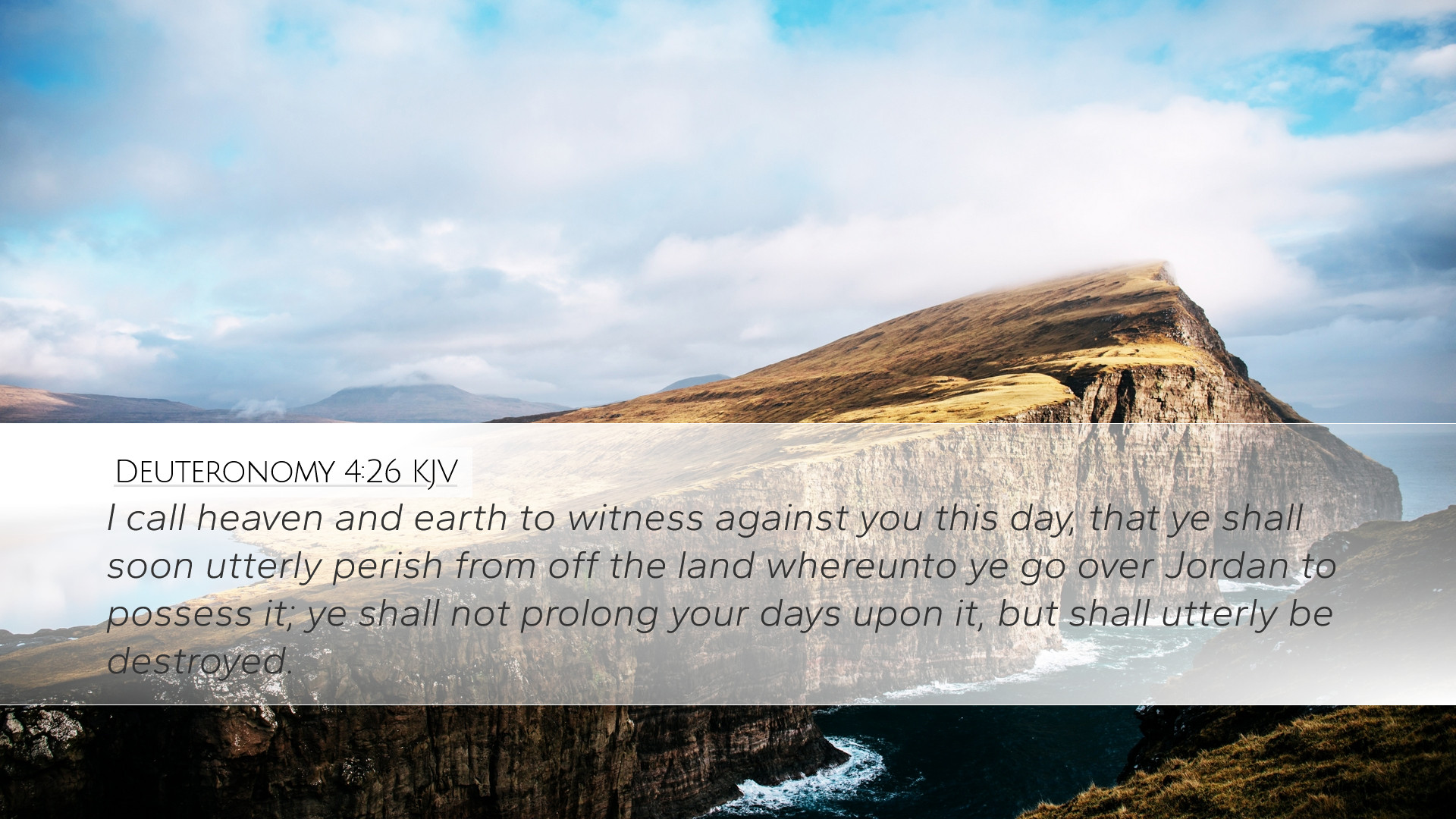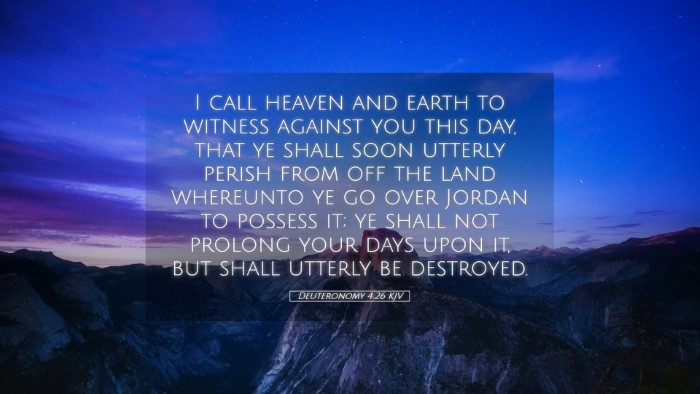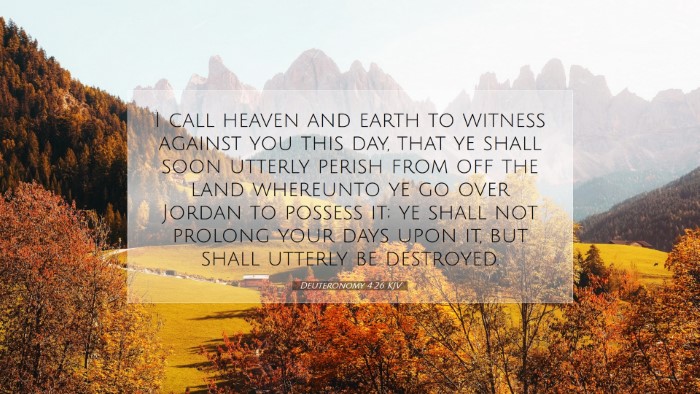Bible Commentary on Deuteronomy 4:26
Verse: "I call heaven and earth to witness against you this day, that ye shall soon utterly perish from off the land which ye go over Jordan to possess; ye shall not prolong your days upon it, but shall utterly be destroyed."
Introduction
Deuteronomy 4:26 is a pivotal verse in the book of Deuteronomy, which serves as a powerful witness to the covenant relationship between God and Israel. This verse emphasizes the serious consequences of disobedience and the gravity of the covenant that Israel is entering into. Public domain commentaries provide profound insights into the theological, historical, and moral dimensions of this passage.
Theological Significance
Witness of Heaven and Earth: The text evokes a dramatic image of heaven and earth as witness. This reflects the biblical theme that creation itself bears testimony to God’s truth (Matthew Henry). The invocation of such witnesses underscores the seriousness of Israel's commitments and the universal nature of their covenant with God (Albert Barnes).
Judgment as a Consequence: The warning of impending destruction serves as a stark reminder of God's holiness and justice. According to Adam Clarke, the phrase "ye shall utterly perish" indicates not only physical destruction but also spiritual alienation from God. This shows that the covenant brings reciprocal responsibilities, and failure to adhere to it leads to dire consequences.
Historical Context
Deuteronomy is often viewed as a series of farewell addresses by Moses before the Israelites enter the Promised Land. The context of Deuteronomy 4:26 is essential for understanding it as Moses prepares the next generation to live in a land that may tempt them to unfaithfulness (Matthew Henry). The previous chapters emphasize the importance of remembering God's laws and avoiding the pitfalls of idolatry and moral compromise.
Exegesis
-
Calling Heaven and Earth: The act of summoning heaven and earth suggests a cosmic accountability that transcends temporal judgment. This declaration enhances the gravity of Israel's decision-making; their actions have repercussions not just for them but for all of creation (Albert Barnes).
-
The Urgency of the Warning: The phrase "this day" indicates immediacy. Christian scholars interpret this as a fresh call to each generation to adhere to God's statutes with urgency. The language of perishing speaks to a collective identity; disobedience affects the whole community, not merely individual actors (Adam Clarke).
-
Possessing the Land: The juxtaposition of possession and destruction highlights the dichotomy of blessings and curses attached to obedience and disobedience. The land promised to Israel represents both a gift and a responsibility, emphasizing that the blessings of God come with the expectation of faithfulness (Matthew Henry).
-
The Consequence of Apostasy: Clarke posits that this verse acts as a prophetic warning, both historical and eschatological. The ultimate destruction refers not only to the Israelites' eventual exile but also serves as a warning to all who depart from God's commandments.
Moral and Ethical Implications
Call to Faithfulness: This passage invites contemporary readers to reflect on the importance of fidelity to God’s covenant. The severe warning of perishing can be seen as a reflection of God's desire for relationship—He longs for obedience, which, when neglected, leads to consequences (Albert Barnes).
Real-Life Applications: Every generation involved in pastoral ministry and theological education is called to bear witness to the reality that unfaithfulness leads to alienation from God’s blessings. This verse should inspire both individual and communal reflection on worship, idolatry, and the call to obedience.
Conclusion
Deuteronomy 4:26 is a solemn reminder of the weight of covenant responsibility. By invoking heaven and earth as witnesses, it emphasizes the multidimensional impacts of human choices in relation to divine expectations. The commentary insights from Matthew Henry, Albert Barnes, and Adam Clarke collectively urge pastors, students, theologians, and Bible scholars to ponder the serious nature of their covenant relationship, highlighting the importance of perseverance in faithfulness amidst life’s trials. This verse serves as a bridge to understanding not just the history of Israel but the ever-present call to fidelity in the life of faith today.


